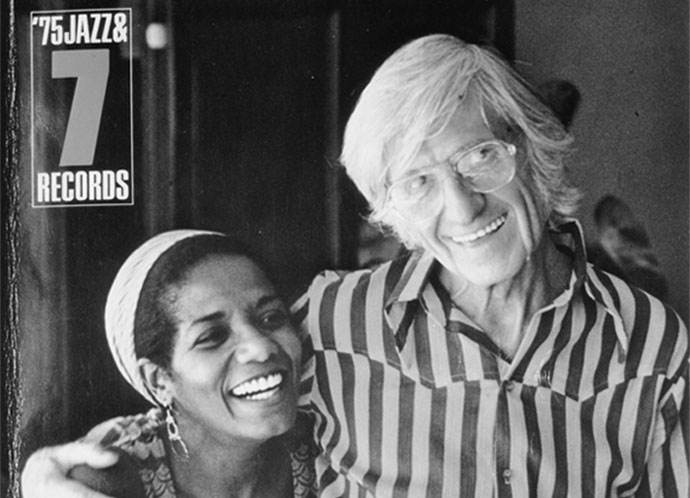 Gil Evans Centennial Celebration! Wall Street Journal Piece. (Part1)
http://online.wsj.com/article/SB10001424052702303448404577410570567393632.html By WILL FRIEDWALDoey DeFrancesco Trio
Birdland
Here's how soul jazz, especially as cooked up and served by a master chef like organist Joey DeFrancesco (this week at Birdland) and his trio, is different from smooth jazz. Both are built from instrumental "covers" of pop songs from the last 40 years (as on Mr. DeFrancesco's excellent 2010 album, "Never Can Say Goodbye: The Music of Michael Jackson"). But while smooth stuff is calculated to provide an innocuous background for elevators and pencil pushing, soul jazz demands an active reaction. You have to dance to it, party to it, or just yell out "yeah" as you sit back and groove in your seat. Guest tenor George Coleman is best known for spending a pivotal year with Miles Davis, but he has always been a florid, flexible player who moves laterally between bebop and soul jazz, having worked with every major organist on the scene during the initial flowering of soul jazz in the 1960s. Born in 1971, Mr. DeFrancesco is the youngest in a long line of soul-jazz Hammond B3 specialists from the Philadelphia/New Jersey area. That lineage includes Richard "Groove" Holmes, Larry Young and the founding father of modern jazz organ, Jimmy Smith, who launched the trend about 60 years ago. The list also includes Mr. DeFrancesco's most direct role model, his father "Papa" John DeFrancesco, a major jazz organist on the Philly stage. Neither DeFrancesco is a small man, and often to watch them play is to get a sense that controlling a massive instrument like the mighty Hammond B3 is a matter of size—it seems like a child's toy in their hands, as if they could shape it, bend it, produce whatever sound they wished from it via sheer willpower. At Birdland, Mr. DeFrancesco is joined by guitarist Peter Bernstein and two special guests, both named George Coleman: George Coleman Jr. is a drummer. His father, George Coleman Sr., is the tenor saxophonist from Memphis, where they know a thing or two about soul. Back in the day, Mr. Coleman Sr. recorded extensively with Jimmy Smith, Big John Patton, Charles Earland, Reuben Wilson, Don Patterson and Shirley Scott, among others (and that's just up to 1972). Together, Mr. DeFrancesco and Mr. Coleman Sr. show that soul jazz is about both groove and melody: Sometimes when superior keyboardists improvise harmonically, you can still hear the tune, as if seeing right through the improvisation clear to the tune below. With Messrs. DeFrancesco and Mr. Coleman, you get a clear cut sense of the melody even though they're not playing it directly (at least not after the opening chorus). When Mr. DeFrancesco opened with "At Long Last Love" with the trio, and then was joined by Mr. Coleman for "Like Someone in Love," "Body and Soul" and "I Thought About You" (for which he played the opening "head" on trumpet), I got the spookiest feeling: the improvisation was standing there right in front of us, big as life, but at the same time the written melody was also there, standing a little bit to the left of the band. For the final number, "I'll Be Seeing You," Mr. DeFrancesco was joined by another longtime tenor sparring partner, Jerry Weldon, a big-toned, lusty stylist who plays with a distinctly Italian accent, in the tradition of Vido Musso and Sam Butera. In 1998, Mr. DeFrancesco celebrated (if that's the right word) his Neapolitan heritage on the album "Goodfellas"—which contained a blues he called "Whack 'Em." Whether he were to wail on you with his fists, or somehow, his talent, Joey DeFrancesco is someone you don't want to get whacked by. Jazz at Lincoln Center Orchestra New Works: 'God's Trombones' & 'Inferno'
Rose Hall (Jazz at Lincoln Center)
Thanks to Wynton Marsalis's own "Big Train" and "Congo Square," as well as Ted Nash's well-received "A Portrait in Seven Shades," there's already a legacy of specially commissioned, original extended works by JaLCO members. This weekend, the orchestra introduces two more new pieces freshly composed within the ranks of the band. Both draw upon the spiritual experience, and both are closely inspired by classic works of literature—yet they couldn't be more different. Trombonist Chris Crenshaw took his cue from James Weldon Johnson's 1927 poem "God's Trombones: Seven Negro Sermons in Verse," which reinterprets the major books of the Old and New Testament through the perspective of a Southern African-American preacher, an epic work meant to be spoken aloud to a group rather than read in private. And saxophonist Sherman Irby's "Inferno" takes rather literally the idea that jazz is the "devil's music" in a swinging suite based on the first book of Dante Alighieri's "The Divine Comedy." Mr. Irby's piece will feature choreography by Hope Boykin of the Alvin Ailey American Dance Theater, with a performance by HopeBoykinDance. |
|
